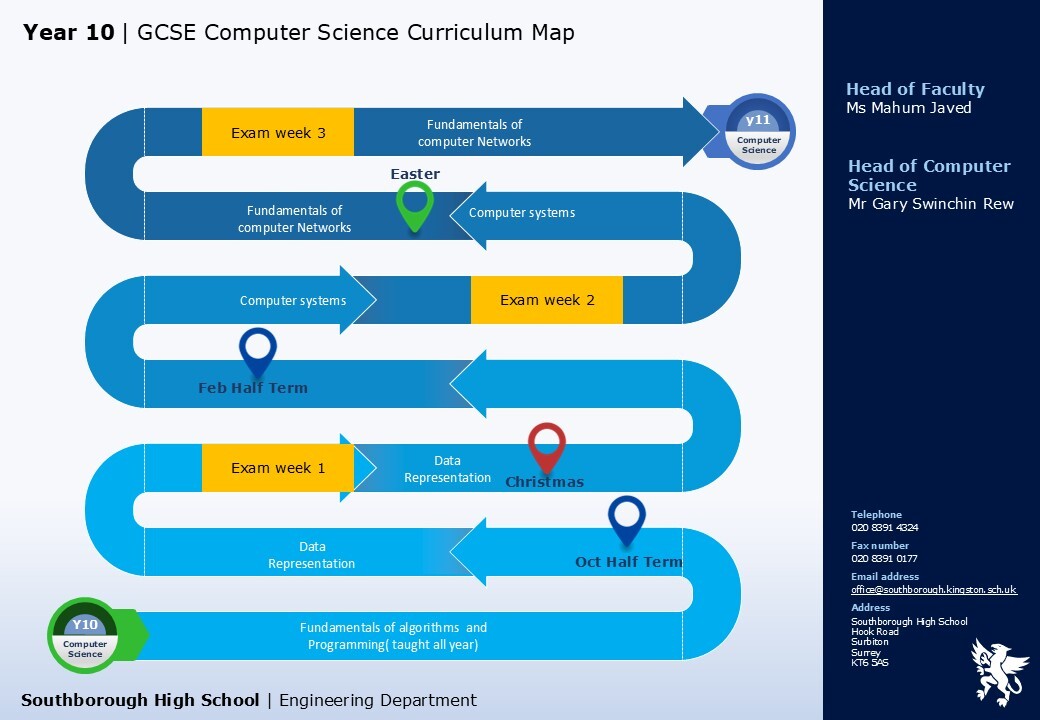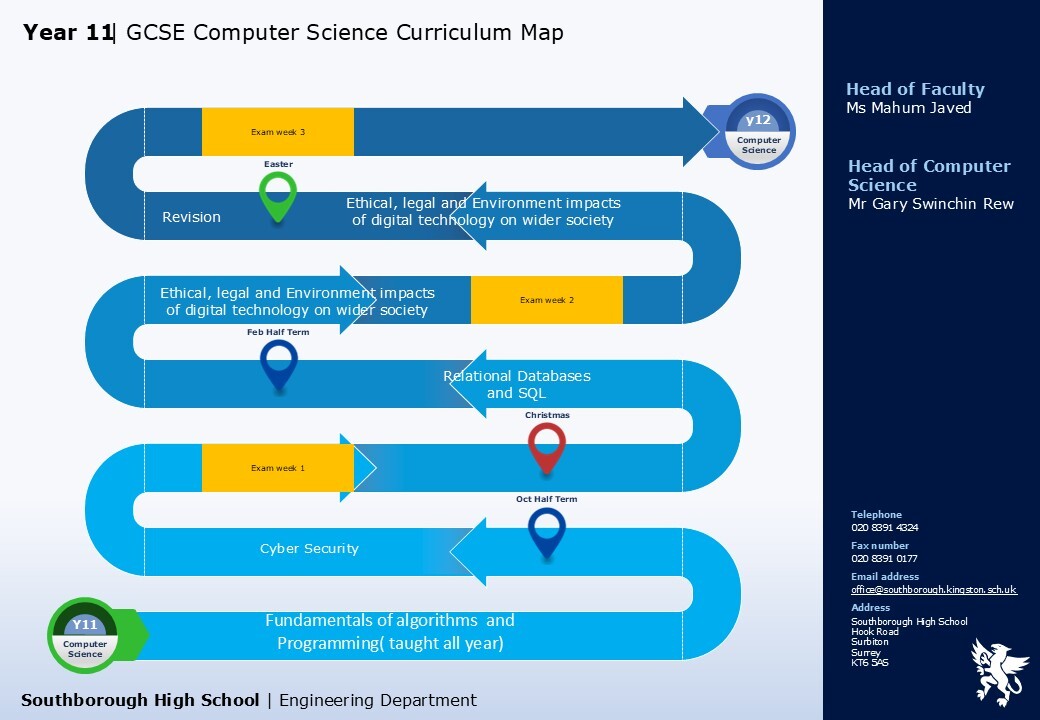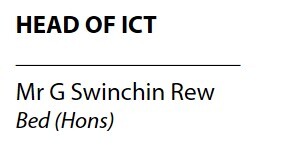
- Home
- Curriculum
- Subject Information
- ICT & Computer Science
ICT & Computer Science
Back
The number one benefit of information technology is that it empowers people to do what they want to do. It lets people be creative. It lets people be productive. It lets people learn things they didn't think they could learn before, and so in a sense it is all about potential.
Information Technology is rapidly changing every aspect of the world we all live in.
When our students leave school and look for their first job, many of them will be applying for roles that do not yet exist. A rounded education should help prepare them for this constantly evolving world. Studying ICT teaches students a range of invaluable life skills such as reasoning, logical thinking, problem solving, precision and resourcefulness.

In the Lower School, the curriculum is designed to enable students to develop computational thinking skills and become competent digital users. Students study a range of topics including programming, spreadsheets, binary, hexadecimal, computer hardware and networks.
In KS4, BTEC ICT is a popular GCSE option subject. This course develops lifelong skills which will be useful in students’ work across the curriculum and preparing them for future employment. They will develop understanding of the implications of technology in society, including social, economic and ethical uses and awareness of the ways ICT can help in home, learning and work environments. The syllabus combines theoretical and practical studies focusing on the ability to use common software applications to solve problems, including word processors, spreadsheets, databases, interactive presentation software, web browsers and website design. Students analyse, design, implement, test and evaluate ICT systems, ensuring that they are fit for purpose.
BTEC Tech AwardsDigital Information Technology Specifications
GCSE Computer Science
This course will be of particular interest to those who are interested in gaining a thorough understanding of Computing and those who are interested in a career in IT/Programming/cyber security/Gaming.
What will I learn?
The aim of this course is to provide a well rounded experience of the world of Computer Science both theoretical and practical. It will prepare students to move on to the next level of learning, or be able to apply what they have learnt about computers and programming in the world of Employment or apprenticeships.
The Topics will include:
1 Fundamentals of algorithms
2 Programming
3 Fundamentals of data representation
4 Computer systems
5 Fundamentals of Computer Networks
6 Cyber Security
7 Relational databases and SQL
8 Ethical ,Legal and environmental impacts of digital technology on wider society
Curriculum Maps ICT
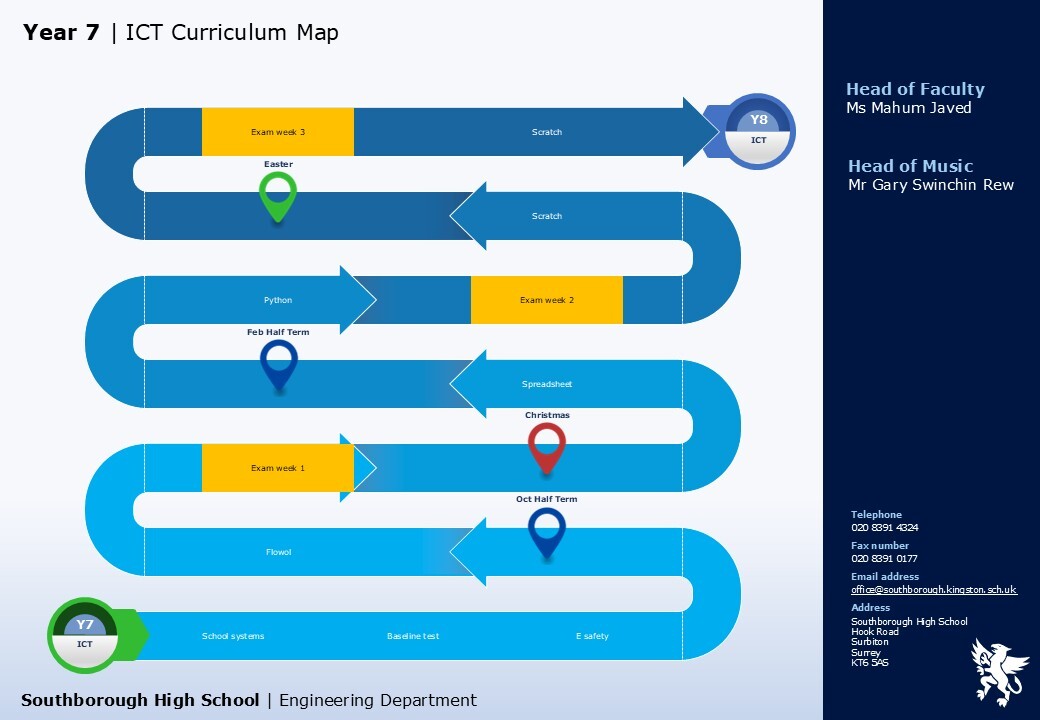
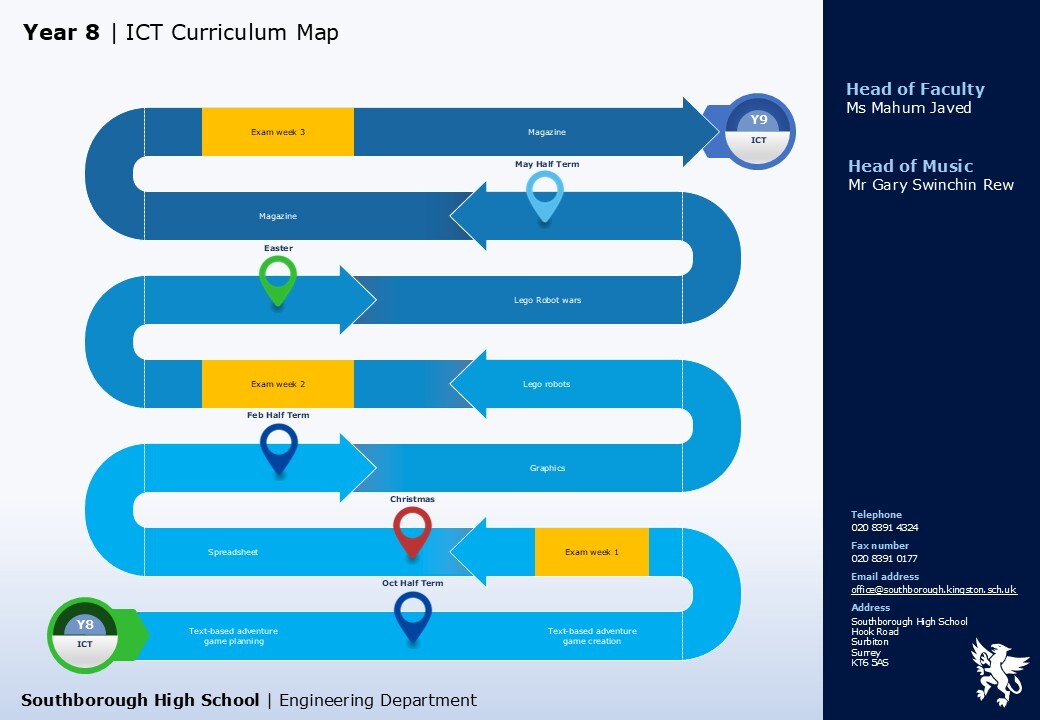
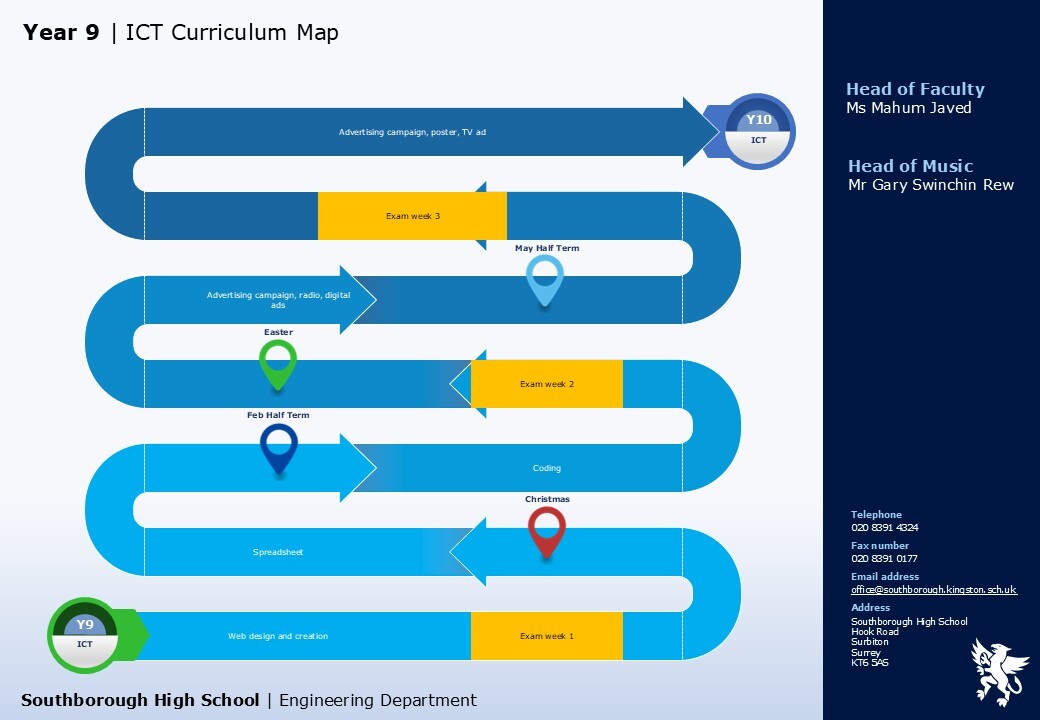
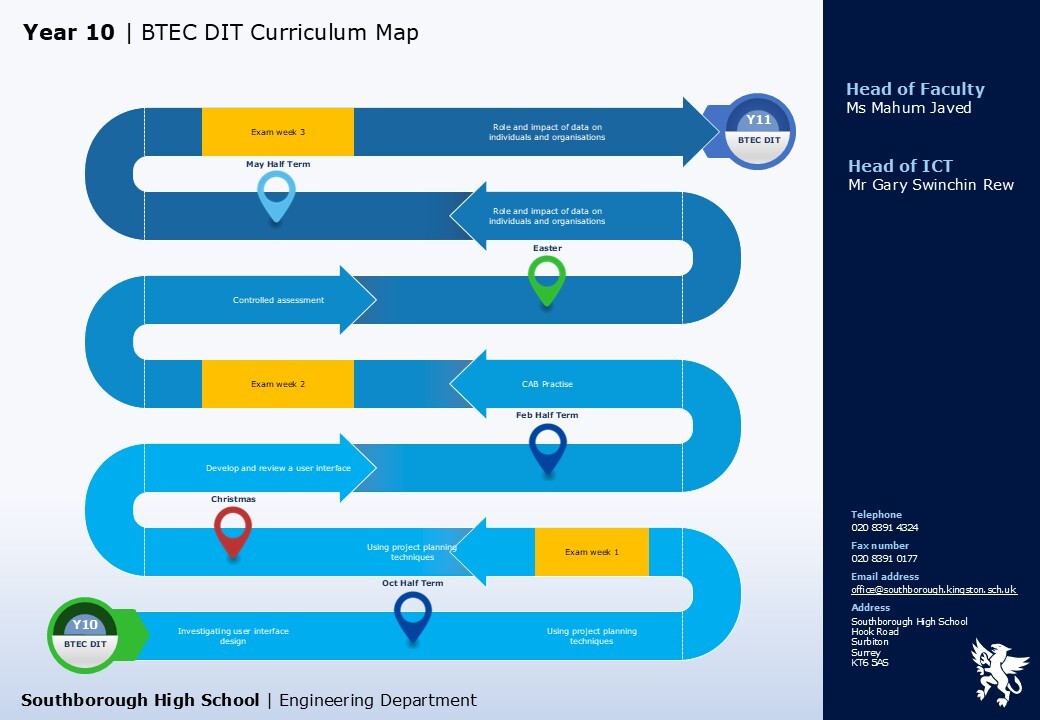
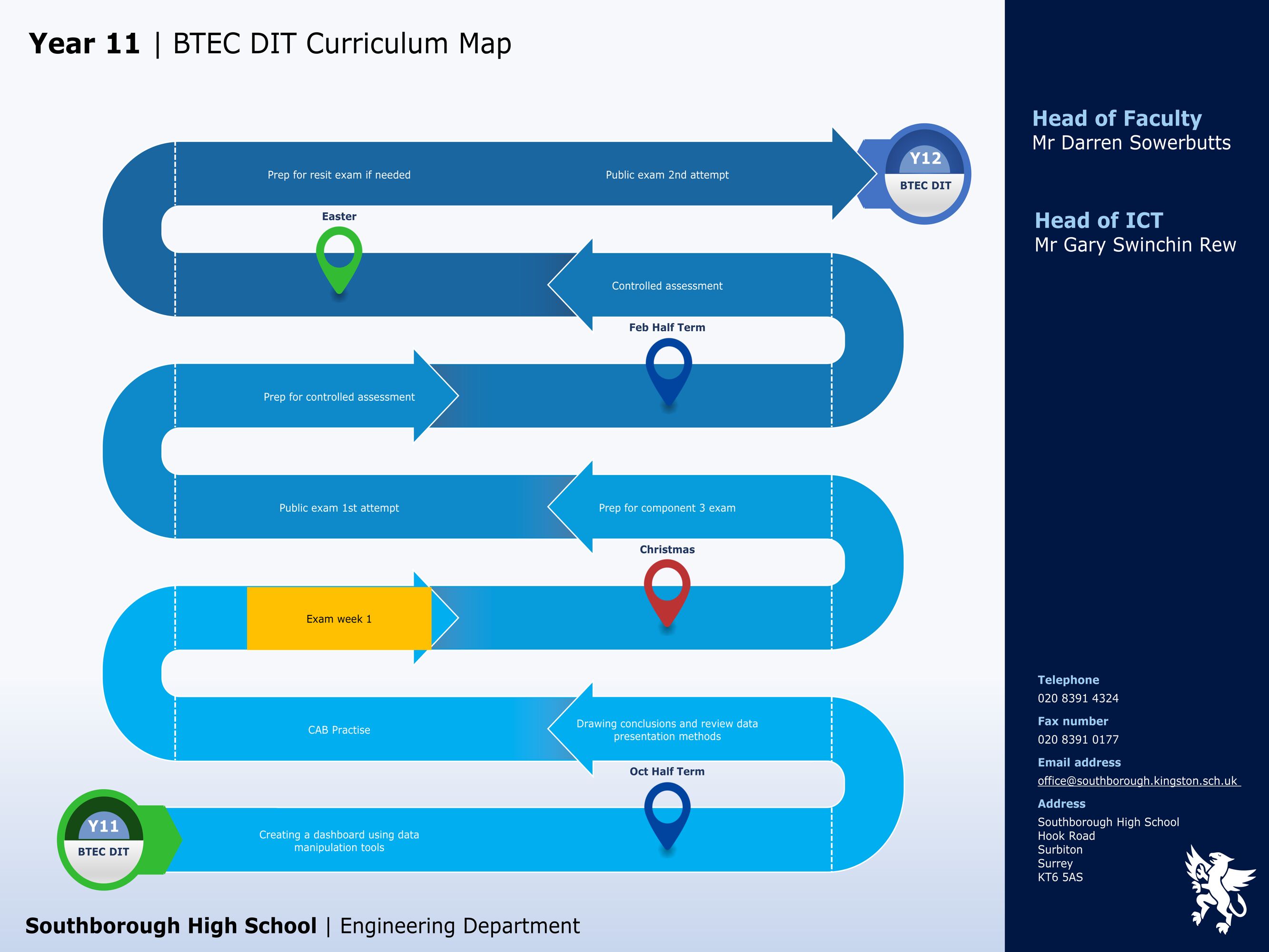
Curriculum Map GCSE Computer Science
